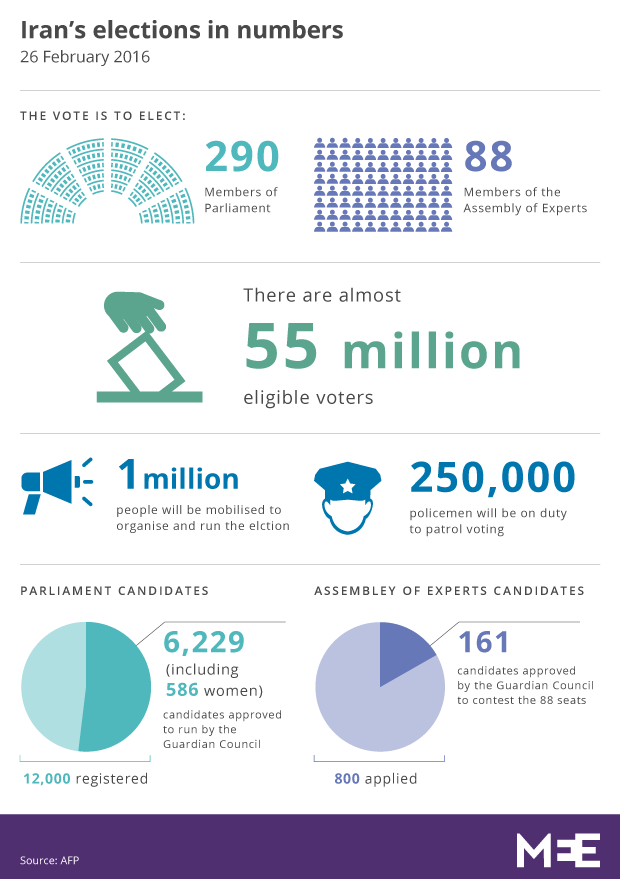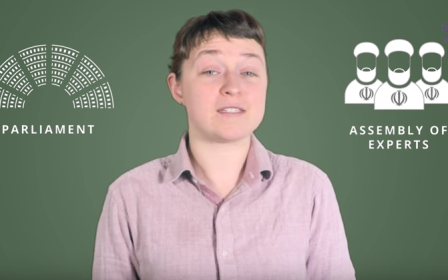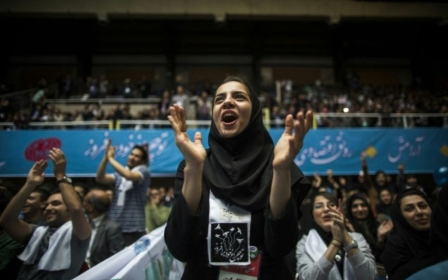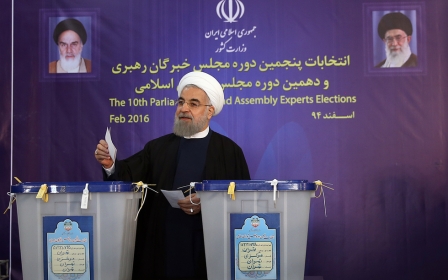Rouhani on course for major gains in Iran elections
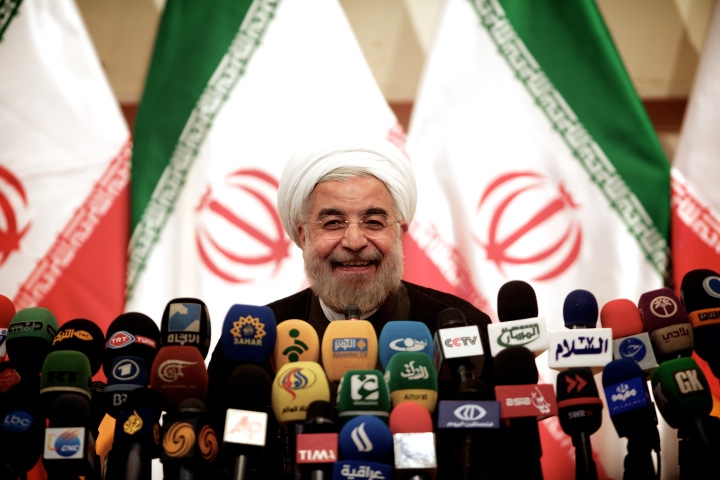
Iran's moderate President Hassan Rouhani is likely to make sweeping gains against conservatives in parliament according to partial election results on Saturday that showed his allies winning decisively in Tehran.
The List of Hope, a pro-Rouhani coalition of moderates and reformists, is ahead in all but one of the capital's 30 seats, with 44 percent of votes counted.
The projected rout in Tehran was in marked contrast to earlier initial results from across the country which showed seats split between the main conservative list, Rouhani's allies and independent candidates.
“The competition is over. It’s time to open a new chapter in Iran’s economic development based on domestic abilities and international opportunities," the semi-official IRNA news agency quoted Rouhani as saying. He added that the government would cooperate with anyone elected to build Iran's future, Reuters reported.
Coming just a month after sanctions were lifted under Iran's nuclear deal with world powers, the outcome of Friday's vote is being seen as a de-facto referendum on Rouhani's administration.
The president joined forces with reformists to try and curtail conservative dominance of parliament and create space to pass social and political reforms on which he has so far been blocked.
Early declarations published by IRNA, citing electoral officials, suggested that no one faction would win a majority in parliament.
Out of 56 constituencies outside the capital, 19 went to the main list of conservatives, nine to the pro-Rouhani list, and 14 to independent candidates.
Of the independents six had ties to conservatives, five to reformists and three were undeclared. None of the remaining 14 seats had a clear winner, meaning a second round, not to take place until April or May, would be needed.
Turnout in the election was solid at 60 percent, but slightly less than the 64 percent of 2012.
There was further good news for the president in the second election that took place on Friday, for the Assembly of Experts, a powerful committee of clerics that monitors the work of Iran's supreme leader Ayatollah Ali Khamenei.
Rouhani and his close ally Ayatollah Akbar Hashemi Rafsanjani, a former two-term president, held the first two places among the 28 clerics seeking one of the 16 places reserved on the assembly for Tehran.
Hardline cleric Ahmad Jannati, the head of the Guardian Council who was responsible for disqualifying hundreds of moderate candidates in the run-up to the poll, was placed 15th on the list by Sunday afternoon, putting him in the danger zone to lose his place in the Assembly of Experts.
Thirteen of those on the Rouhani-Rafsanjani list for the assembly were in the top 16, with around one third of votes counted.
The assembly election is especially important because should Khamenei, who is 76, die during its eight-year term, its 88 members would pick his successor.
Polling stations were kept open late Friday to allow millions of latecomers to participate.
Even after all votes are counted by the interior ministry's officials, final results of both elections must be confirmed by the conservative-dominated Guardian Council -- and are not expected for several days.
Khamenei was among the first to vote on Friday and he urged the entire electorate to follow suit, saying casting a ballot is "both a duty and a right".
If turnout proves no higher than in 2012 but the parliamentary election produces a radically different result it could be because different parts of the electorate voted this time around.
Many moderate voters stayed away in the last parliamentary polls in protest at the re-election three years earlier of hardline president Mahmoud Ahmadinejad.
But the domination of Tehran by the List of Hope suggested they turned out heavily on Friday.
Known as the "diplomat sheikh" because of his clerical credentials and willingness to negotiate, Rouhani was the driving force behind the nuclear deal, which he delivered despite political pressure at home.
The agreement with powers led by the United States, the Islamic republic's bete noire, raised hopes of recovery in Iran. But although the economy exited a deep recession in 2014-15, growth has stagnated in the past year.
The run-up to polling day was largely overshadowed by controversies over who was allowed to stand. Thousands of candidates were excluded.
Reformists said they were worst hit, with the barring of their most prominent faces leaving them with untested hopefuls.
A total of 4,844 candidates, about 10 percent of whom are women, stood in the parliamentary election. Only 159 clerics -- a fifth of the applicants before vetting -- were vying for the Assembly of Experts.
New MEE newsletter: Jerusalem Dispatch
Sign up to get the latest insights and analysis on Israel-Palestine, alongside Turkey Unpacked and other MEE newsletters
Middle East Eye delivers independent and unrivalled coverage and analysis of the Middle East, North Africa and beyond. To learn more about republishing this content and the associated fees, please fill out this form. More about MEE can be found here.


